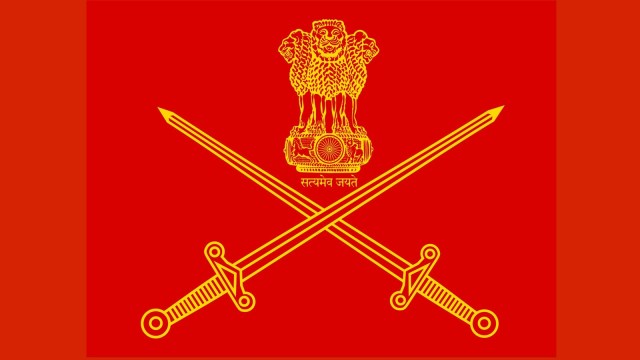Military Digest: Patiala Colonel incident a dent on the Army’s ‘Iqbal’
Army units in the past have been known to take matters into their own hands when the unit personnel are mistreated or perceived to be mistreated at the hands of the Police.
 'Iqbal’ is something which is intrinsically linked to the military, particularly to the Army.
'Iqbal’ is something which is intrinsically linked to the military, particularly to the Army. Iqbal is an Urdu word which is often difficult to translate with exact meaning into English. But it is most commonly used to denote authority, power, glory or the high position of a person, group of persons or an organisation/government as the case may be. The Regiment of Artillery’s motto says, ‘Sarvatra Izzat-o-Iqbal (Everywhere with honour and glory).’
This ‘iqbal’ is something which is intrinsically linked to the military, particularly to the Army. And the common refrain among the ex-servicemen fraternity, who can afford to be vocal and outspoken as compared to their brothers and sisters in uniform, is that the ‘iqbal’ of the military uniform has been dented due to the tame handling of the Patiala incident.
The assault on Colonel P S Bath and his son in Patiala is not the first of its kind, nor can it be expected to be one of the last. Friction between the Police and the Army has a long history in the country, as is the case in many nations across the world. However, mishandling of such incidents by both parties involved can lead to long-term damage to institutional relations and create bad blood.
In this region alone, comprising Punjab, Haryana, Himachal Pradesh and Jammu and Kashmir, there have been numerous instances where the Army and the Police have been involved in unsavoury incidents which were a direct result of failure to act as per law and the desire to protect their own personnel by the Police.
Two incidents in this regard have been widely quoted by the retired officers community, and these pertain to the infamous 1992 assault on a lieutenant colonel by the then Chandigarh senior superintendent of police and the 1994 Nahan/Paunta Sahib incident. In both these incidents, the Army took a strong stance top-down, and while no justification should be made for taking the law into one’s own hands, the retribution in the Nahan incident was a direct result of police inaction.
Veteran journalist Kanwar Sandhu, who was resident editor of The Indian Express in Chandigarh in 1994 and who covered the Nahan incident says the then Army Chief General B C Joshi and the then Western Army Commander Lt Gen R K Gulati took an extremely dim view of the mistreatment of a Captain posted at IMA Dehradun while transiting Paunta Sahib. He recalls that the then commander of the newly established special forces group, Brig Sukhi Mann, was tasked with taking remedial measures.
Army units in the past have been known to take matters into their own hands when the unit personnel are mistreated or perceived to be mistreated at the hands of the Police with unfortunate consequences. It is good that cool heads prevailed in Patiala, and while the local formation headquarters of the Army intervened in the issue, it was hampered in its efforts due to various factors which do not preclude chicanery by senior Patiala cops and inefficiency of its own higher headquarters.
Veterans feel that the Police were able to run circles around the Army in the aftermath of the Patiala incident because of inadequate appreciation of the legal procedures like FIR against unknown persons, non-cognisance of the complaint of the colonel by the Police in registration of FIR by name against assailants and false allegations of the dhaba owner. The inability to grasp the gravity of the matter and the implications that it would lead to has also resulted in the colonel ultimately having to fend for himself and approaching the Punjab and Haryana High Court for justice.
Today, the state governments do not have any provisions for the special treatment of serving soldiers or, for that matter, veterans. Serving personnel are often left running from pillar to post at police stations, tehsils and sub-tehsils in their brief leave period to get their legitimate grievances resolved. No attempt is made to ease the rules of governance for these troops who serve in far-flung areas, away from their families, in defence of the nation.
And to make matters worse, while they are on leave, they face the worst from the law enforcement body – Police – which then proceed to defend their own in the most blatant fashion.
There was a time during the British colonial rule when an Army officer went home on leave, his Commanding Officer (CO) would write a letter to the deputy commissioner informing him of his officer’s arrival in his district. This was to ensure the ‘iqbal’ of the officer, his regiment and the Army in case he required any help. Sadly, today, the onus on ensuring a soldier’s ‘iqbal’ rests as much on the Army as it does on the civilian administration.







